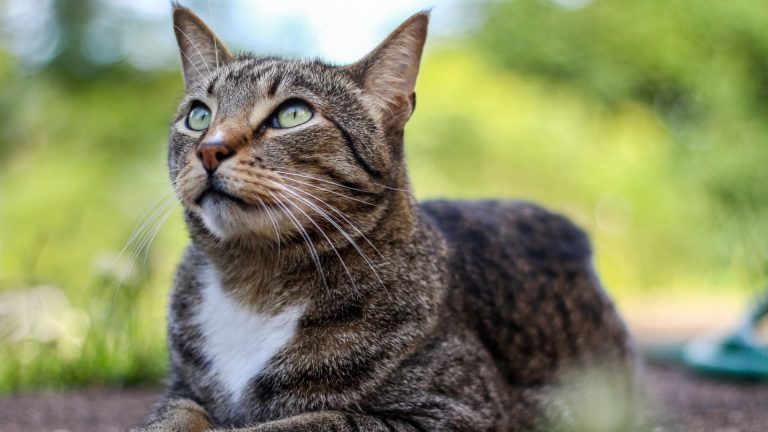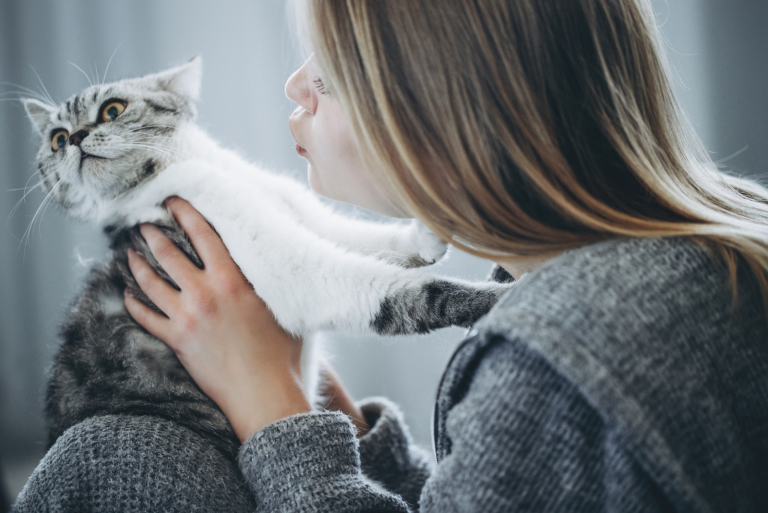11 Things In Your Home That Are Secretly Stressing Out Your Cat
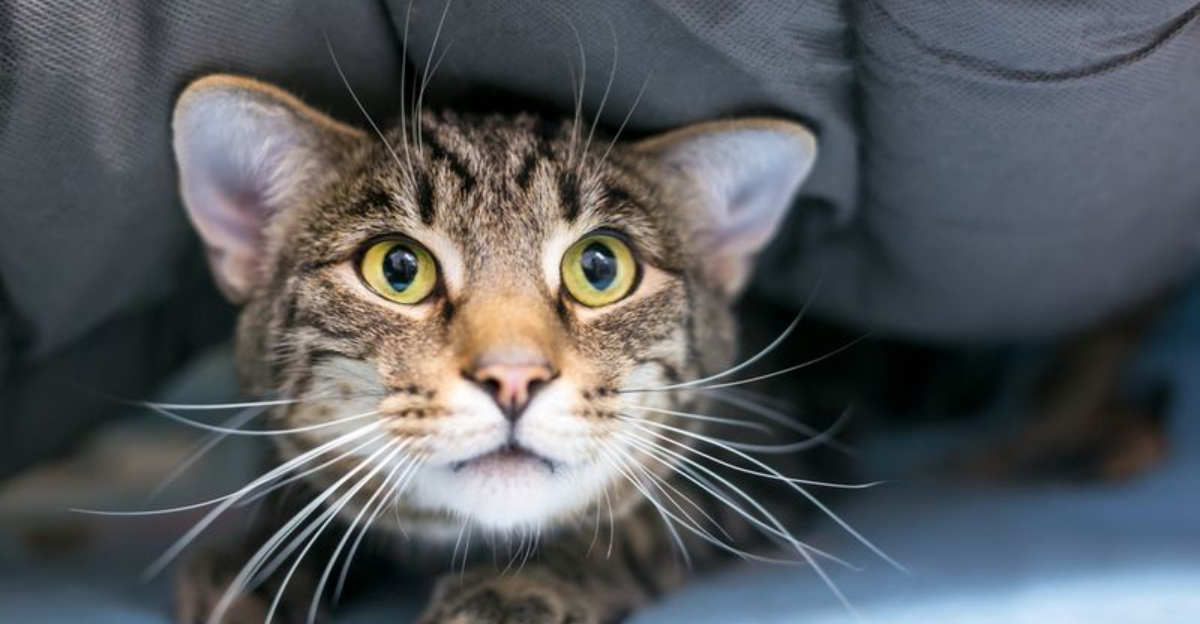
Your furry feline friend might be silently suffering from stress caused by everyday items in your home. Cats are sensitive creatures with heightened senses that can make ordinary household objects or situations overwhelming for them.
Understanding these hidden stressors can help you create a more peaceful environment for your cat and improve their overall wellbeing.
1. Changing Their Litter Box Too Often
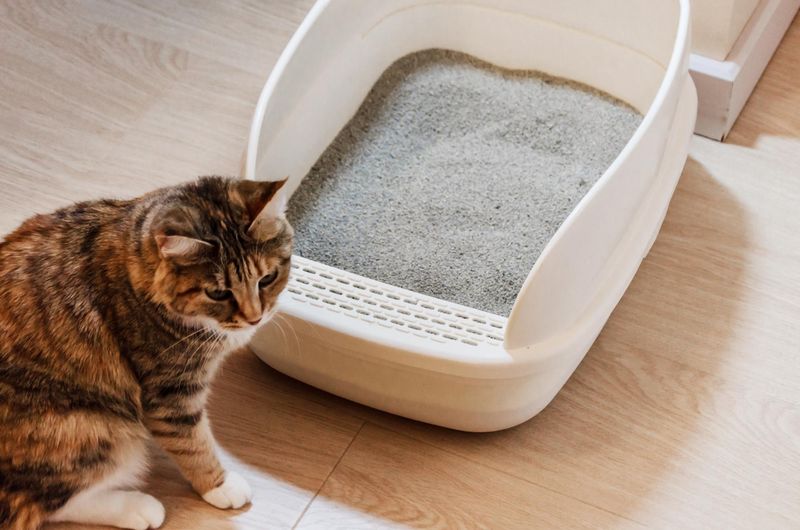
Felines are creatures of habit who mark their territory through scent. Constantly cleaning or relocating their litter box erases familiar smells that provide security.
Your well-intentioned cleaning spree might actually be creating anxiety for your cat. They rely on consistent scent markers to feel safe in their environment.
Maintaining the same location and cleaning schedule helps your cat feel secure in their bathroom routine.
2. Unfamiliar Guests Or Strangers
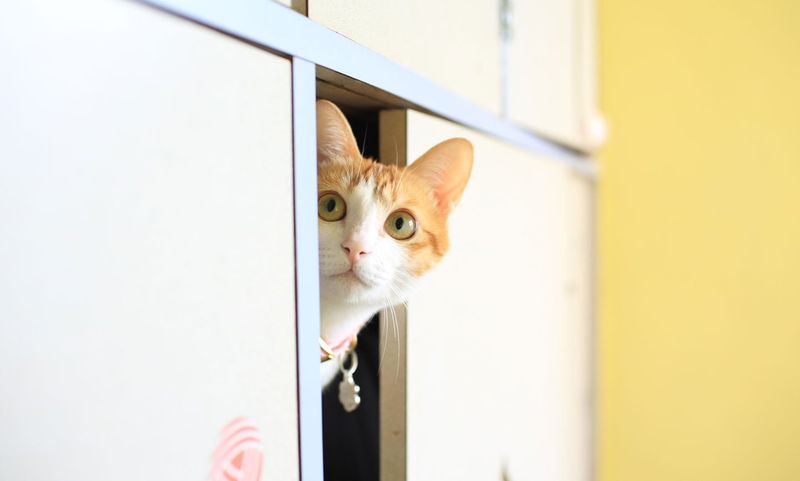
Your home is your cat’s kingdom, and unexpected visitors are essentially invaders from their perspective. Those friendly dinner guests represent unpredictable threats to your territorial pet.
Cats often respond to strangers by hiding, displaying defensive postures, or excessive grooming. Creating a quiet retreat space gives your anxious feline a safe zone during social gatherings. Allow them to investigate newcomers on their own terms rather than forcing interactions.
3. Other Pets In The Household
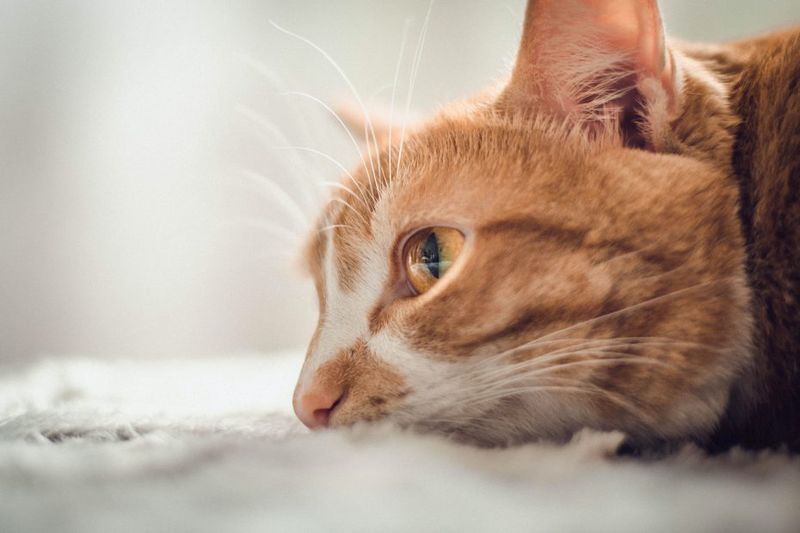
That adorable puppy or new kitten might be causing your established cat serious anxiety. Multi-pet households create complex social hierarchies that can leave your cat feeling threatened or displaced.
Resource competition becomes a daily stressor when pets must share food, toys, and attention. Cats thrive with personal space and clear boundaries.
Providing separate feeding stations, multiple elevated resting spots, and individual play sessions helps reduce tension between your furry roommates.
4. Clutter And Mess
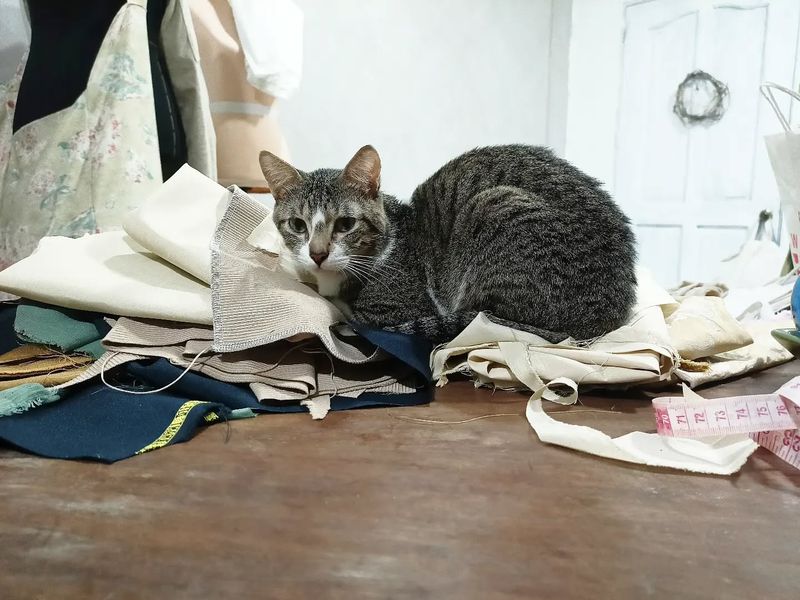
Cats are natural hunters who rely on clear escape routes and strategic pathways through their territory. Household clutter creates obstacles in these important mental maps.
When your living room becomes a maze of laundry piles and scattered objects, your cat loses confidence in navigating their environment.
The inability to move freely triggers anxiety and defensive behaviors. Maintaining organized spaces with predictable pathways helps your cat feel secure and in control.
5. Loud Noises (Vacuum, Blenders, etc.)
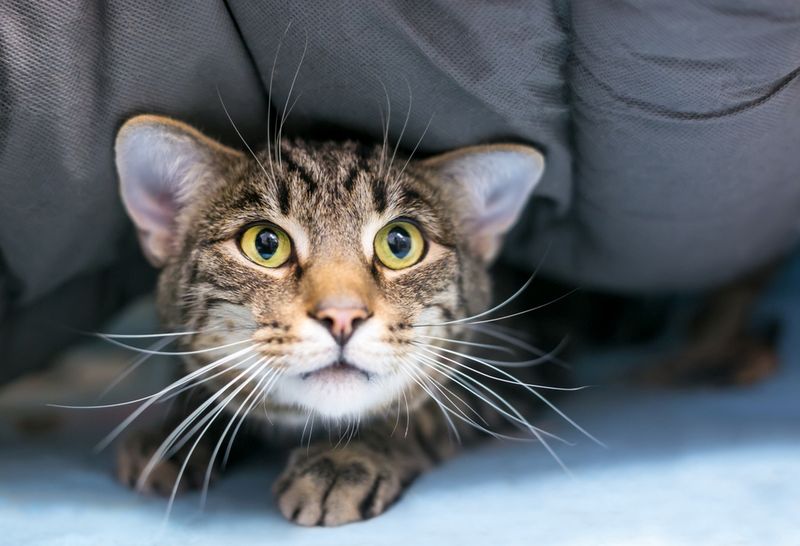
Your cat’s ears can detect sounds up to 64,000 Hz compared to our measly 20,000 Hz range. This superhuman hearing makes household appliances sound like monsters to them!
When you turn on the vacuum, your cat experiences something similar to a jet engine blasting right next to their sensitive ears. Many cats develop hiding routines specifically to escape these sonic assaults.
6. Overactive Or Aggressive Play
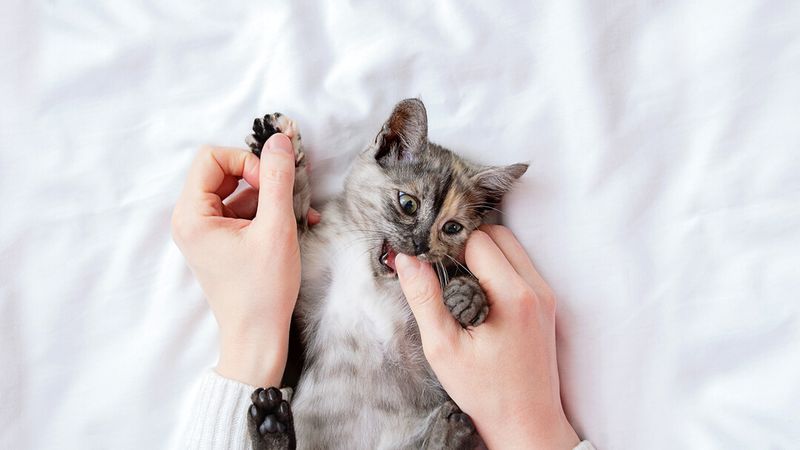
Hand-wrestling might seem playful to you, but those wiggling fingers can blur the line between toy and threat for your cat. Rough play sessions teach cats that human body parts are acceptable targets.
Cats need appropriate outlets for their hunting instincts. Using interactive toys creates healthy distance while satisfying their natural drives.
When play becomes too intense, cats often display subtle stress signals like tail flicking or dilated pupils that should prompt an immediate play break.
7. Strong Fragrances (Candles, Air Fresheners, etc.)
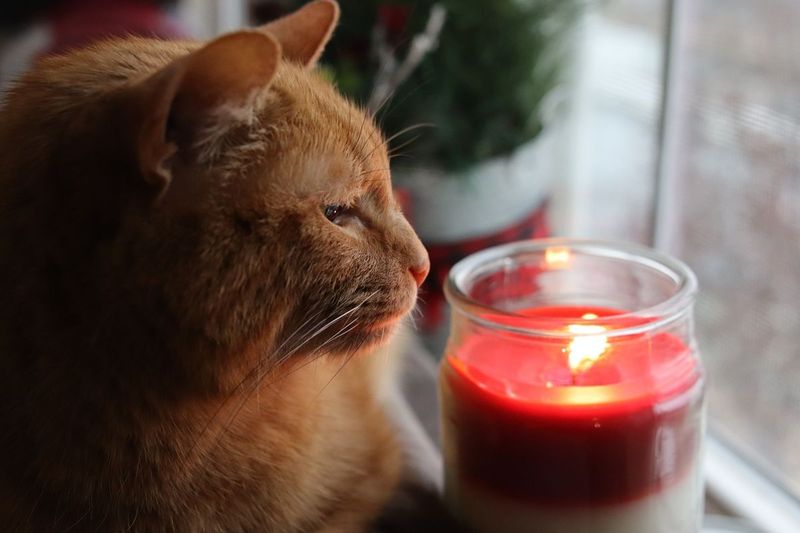
Your favorite scented candle might be creating a sensory nightmare for your cat. Their olfactory system contains 200 million scent receptors compared to our mere 5 million.
Essential oils can be particularly problematic, as many are toxic to cats even when diffused. What smells pleasant to humans can overwhelm feline senses and trigger respiratory distress.
Unscented products and natural ventilation create a more comfortable environment for your sensitive companion.
8. Sudden Changes In Routine
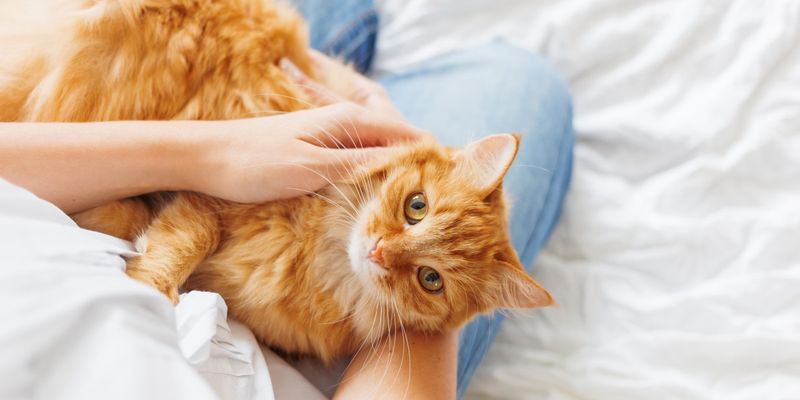
Remember how grumpy you felt when daylight savings disrupted your schedule? Your cat experiences similar frustration with any routine change, only they can’t understand why it’s happening.
Cats thrive on predictability – knowing exactly when meals, playtime, and cuddles occur creates security. Even small disruptions like feeding an hour late can trigger stress behaviors.
During necessary changes like moving or travel, maintaining familiar elements like bedding and toys helps reduce anxiety.
9. Uncomfortable Furniture Or Bedding
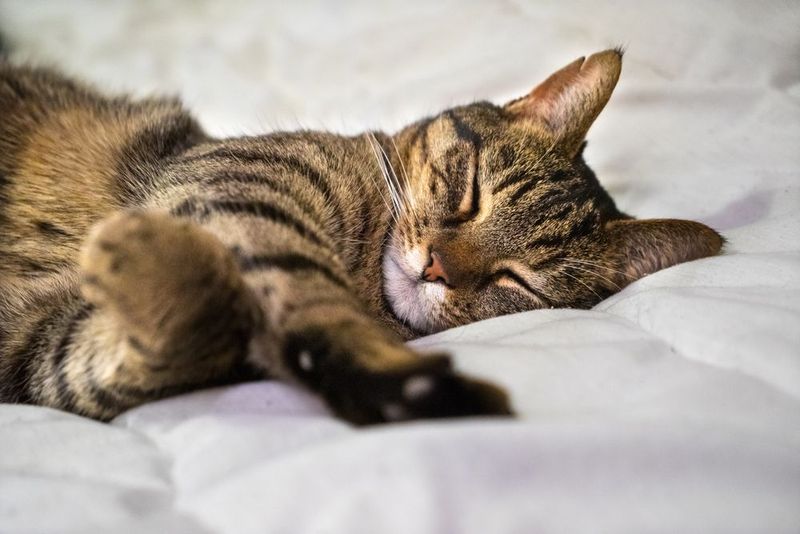
Cats spend 12-16 hours daily sleeping, making comfortable resting spots essential for their wellbeing. Scratchy fabrics, unstable surfaces, or beds placed in high-traffic areas can prevent proper rest.
Sleep deprivation leads to irritability and health problems in cats just as it does in humans. Providing multiple sleeping options with different textures allows your cat to choose based on their comfort preferences.
The ideal cat bed combines softness with security – think partially enclosed spaces with good visibility.
10. Closed Doors Or Barricades
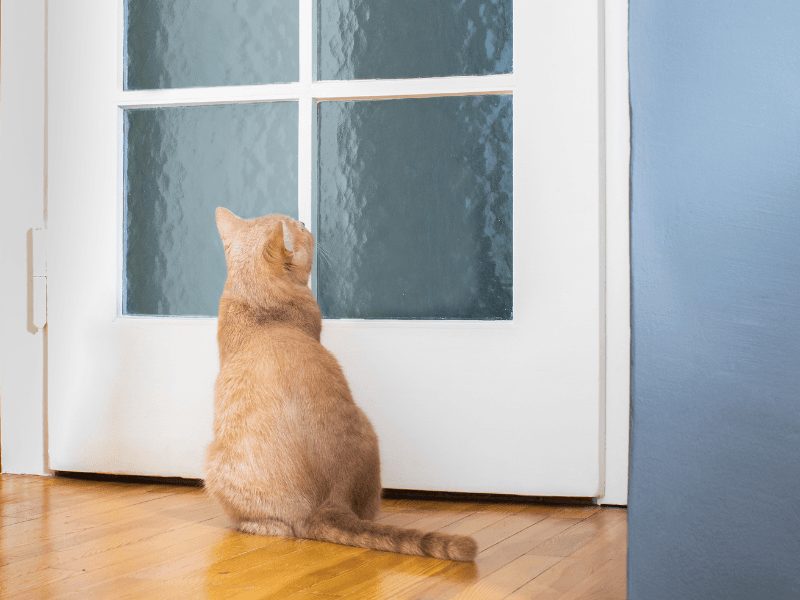
Nothing triggers feline FOMO quite like a closed door! Cats are naturally curious creatures who monitor their territory through regular patrols.
Restricted access to rooms creates genuine anxiety as cats wonder what dangers or resources might exist beyond their reach.
This explains the infamous paw-under-door behavior. When safety isn’t a concern, allowing supervised exploration satisfies this curiosity. For necessary restrictions, providing alternative entertainment nearby helps redirect their attention.
11. Lack Of Personal Space
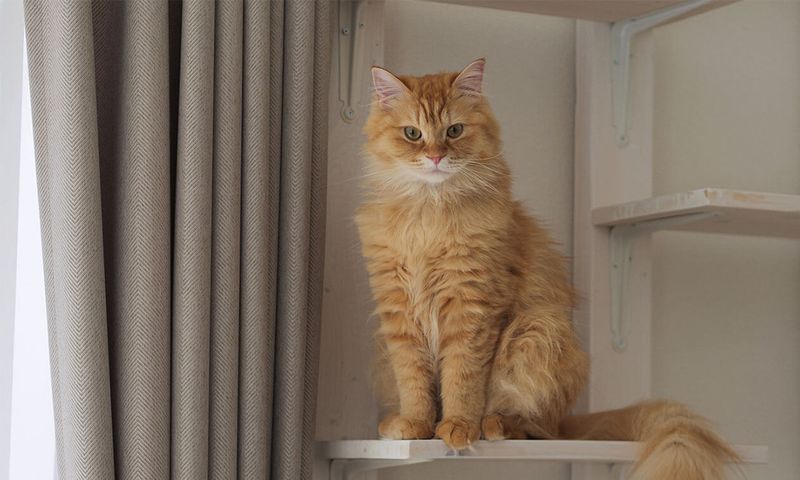
Even the most affectionate cats need alone time. Constant handling, especially from children, can quickly deplete your cat’s social battery.
Unlike dogs, cats evolved as solitary hunters who choose when to socialize. Forced interaction triggers stress hormones that can lead to behavioral problems.
Teaching household members to respect feline body language prevents this common stressor. Creating elevated retreats gives your cat control over social interactions.

